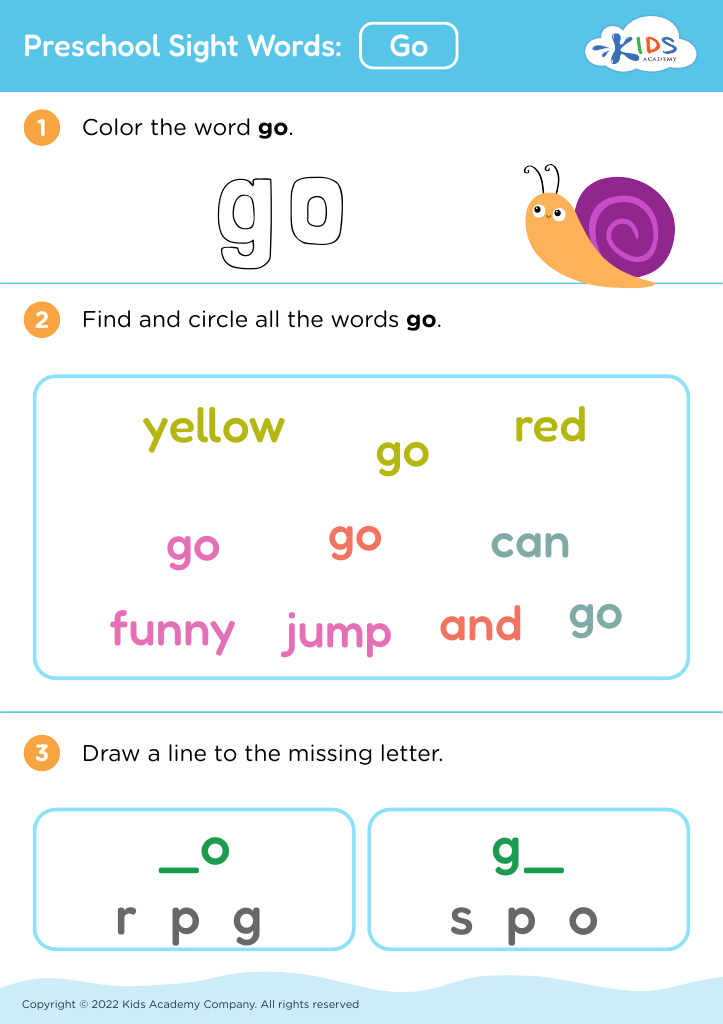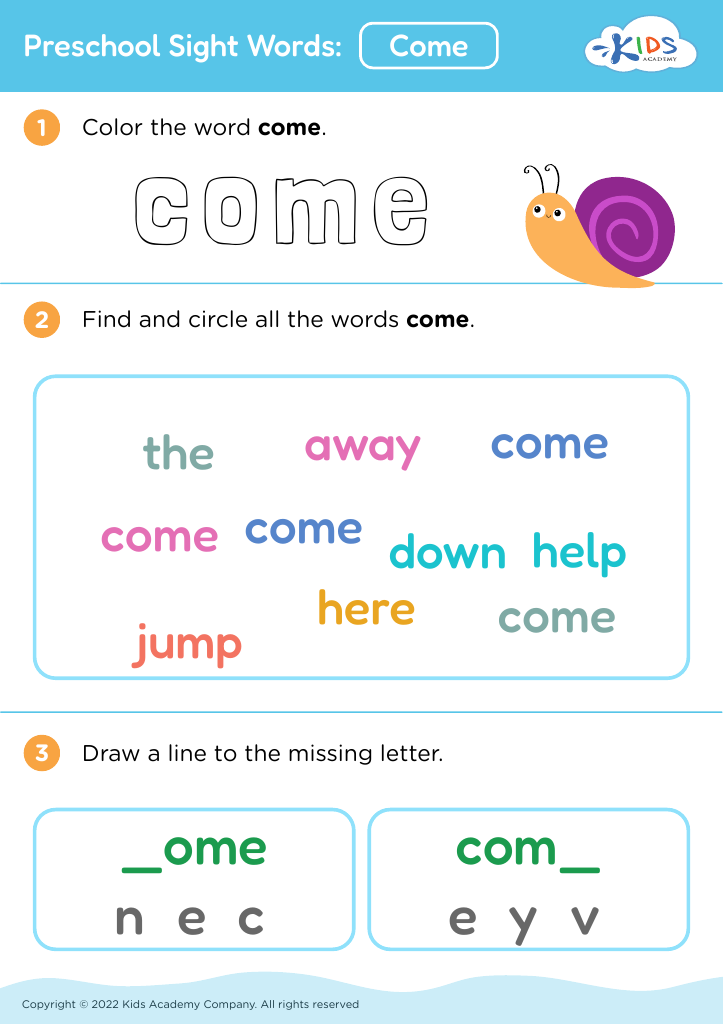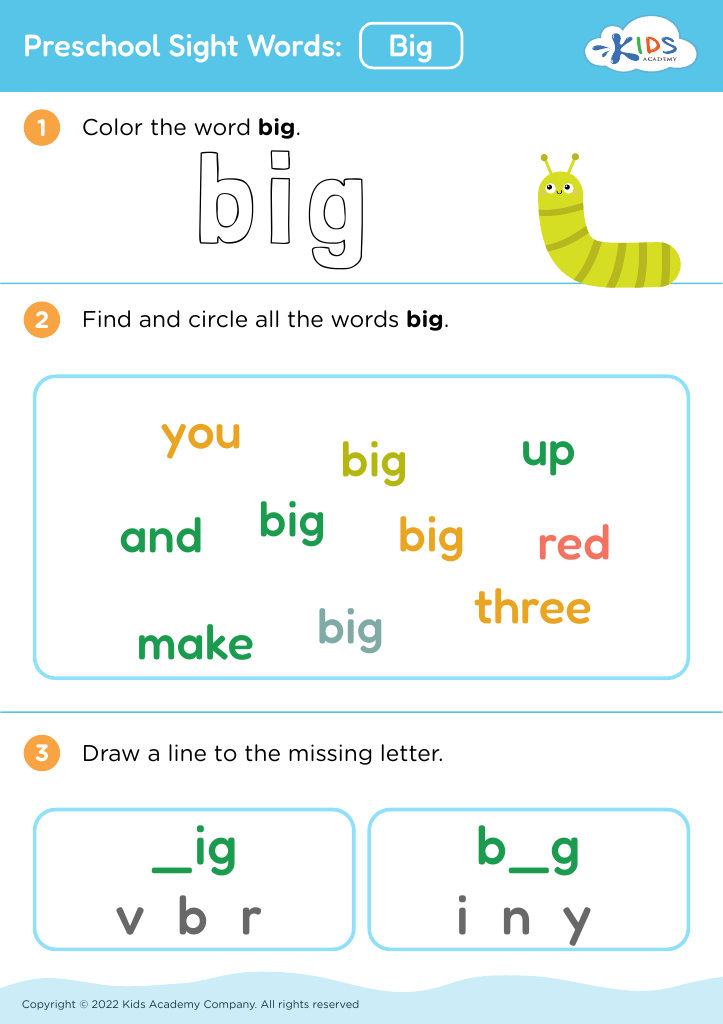Logical Reasoning Building Vocabulary Worksheets for Ages 4-5
7 filtered results
-
From - To
Enhance your child's language development with our "Logical Reasoning Building Vocabulary Worksheets" designed specifically for ages 4-5. These engaging worksheets help young learners sharpen their critical thinking skills while expanding their vocabulary. By presenting fun activities such as puzzles, matching games, and fill-in-the-blank exercises, children can explore word meanings and relationships through logical reasoning. This interactive approach not only boosts comprehension but also ignites a love for learning. Perfect for both classroom settings and home practice, these worksheets encourage active participation and foster a strong foundation in early literacy skills. Join us in nurturing your child's cognitive growth today!
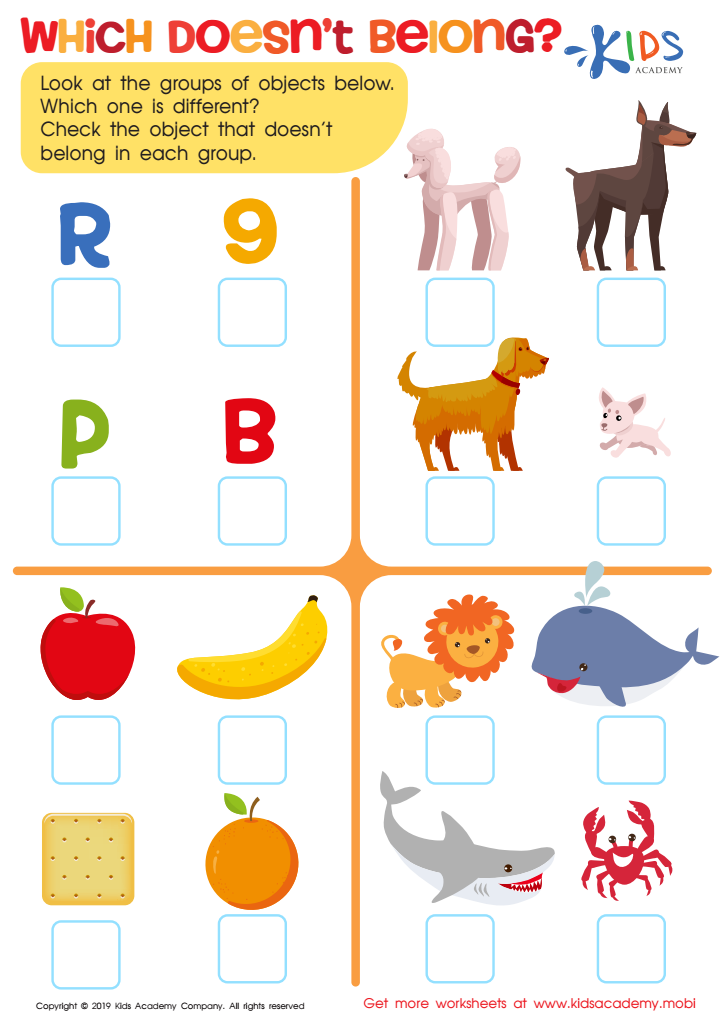

Which Doesn't Belong? Worksheet
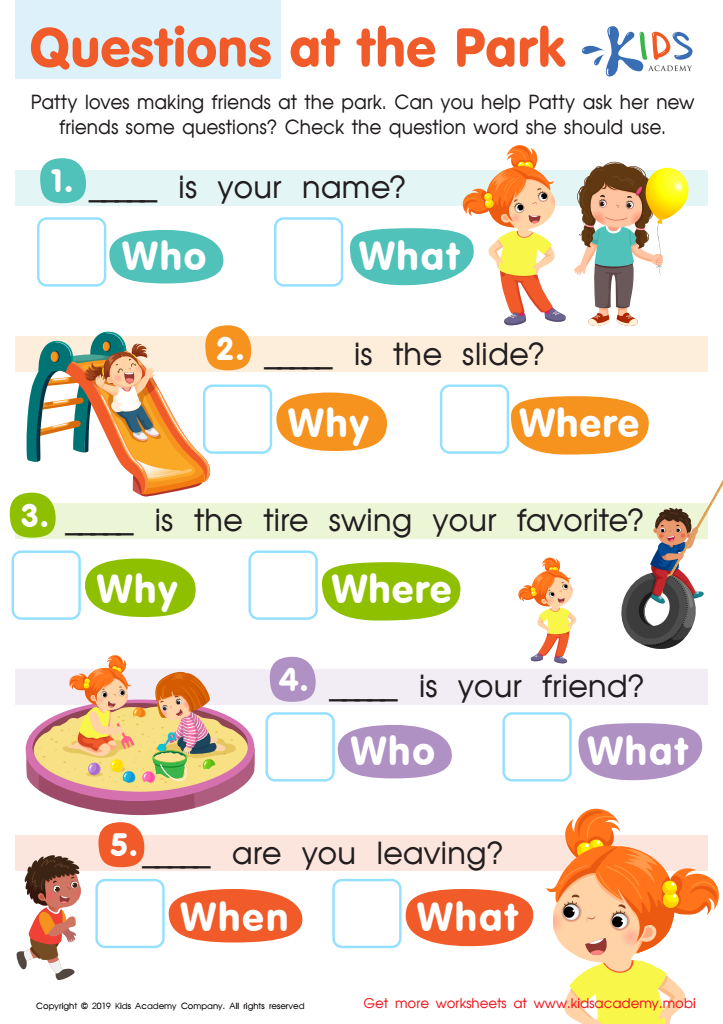

Questions at the Park Worksheet
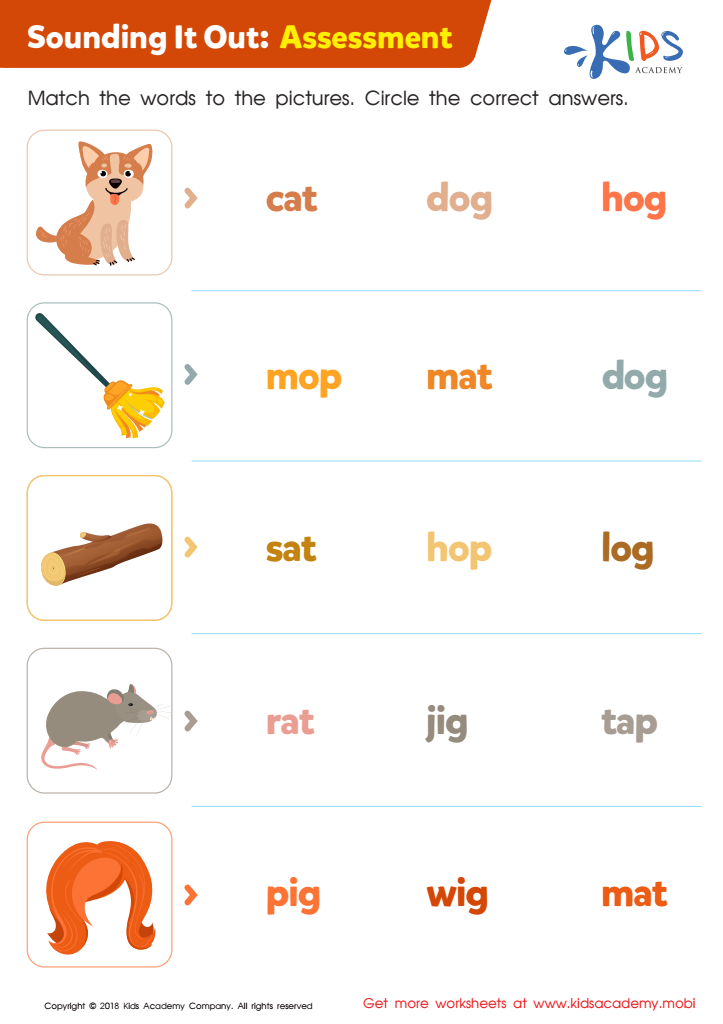

Sounding it Out: Assessment Worksheet
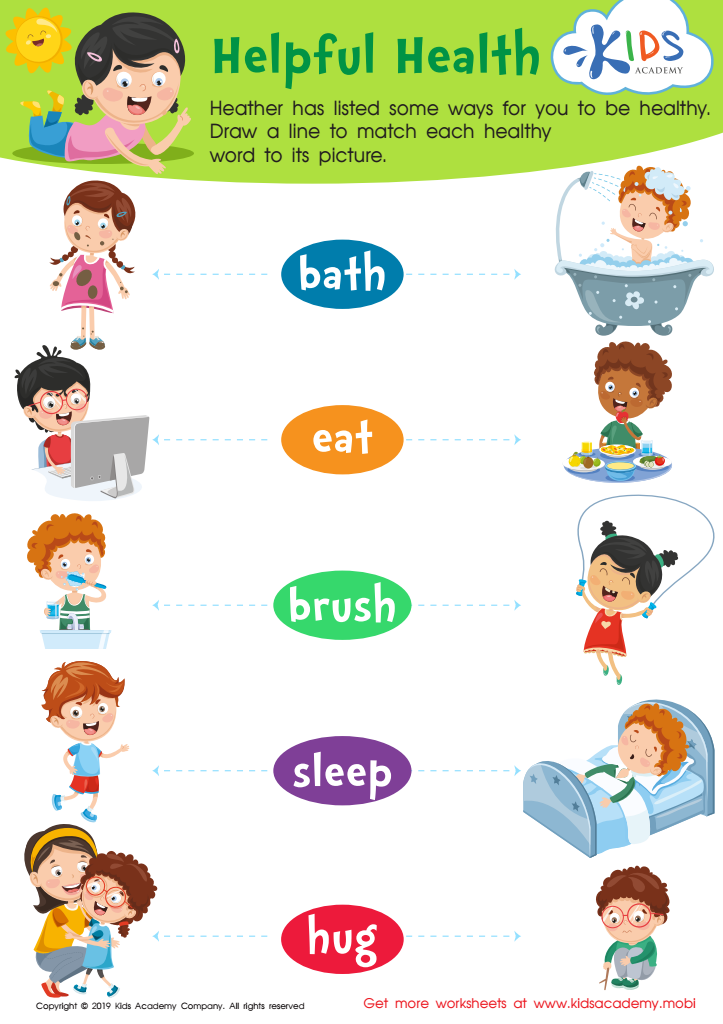

Helpful Health Worksheet
Logical reasoning and vocabulary development are foundational skills for children aged 4-5 that significantly impact their academic success and everyday functioning. At this age, cognitive abilities are rapidly expanding, making it an ideal time to nurture these skills.
Logical reasoning helps children learn to think critically, solve problems, and make sense of the world around them. Engaging in activities that promote reasoning, such as puzzles, sequencing games, or simple cause-and-effect scenarios, enhances their ability to analyze information and reason through challenges they may encounter in school and life.
Simultaneously, a robust vocabulary is essential for effective communication. A rich vocabulary enables children to express their thoughts and feelings, leading to more meaningful interactions. It also assists them in comprehending language, which is linked to better reading and writing skills as they progress through school.
By fostering logical reasoning and vocabulary skills in early childhood, parents and teachers set the stage for successful future learning. Supporting children in these areas not only boosts confidence and engagement in learning but also lays a strong foundation for lifelong critical thinking and effective communication. These skills are vital in helping children navigate their environments and succeed in various contexts throughout life.
 Assign to My Students
Assign to My Students










